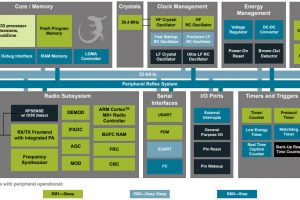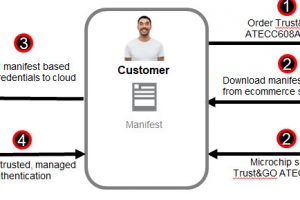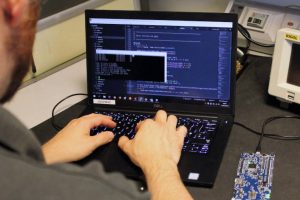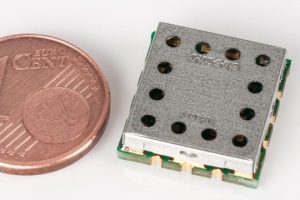“Today we are launching the encryption procedures which will be needed to repel quantum computer attacks of tomorrow,” said company head of identification products Maurizio Skerlj. “Working together with our collaboration partners at the German Federal Printing Office [Bundesdruckerei] and Fraunhofer AISEC, we have succeeded in implementing quantum-resistant encryption procedures and making them available for use in practice.”
Infineon’s contribution is a security controller IC, and the demonstration involves contactless data transfer between the electronic passport and a border checkpoint terminal. Based on the a version of the EAC (‘extended access control) protocol, it also secures biometric data during authentication, conventional attacks are repelled at the same time, and it is compatibe with existing systems.
“The core of our demonstrator uses the cryptographic methods Dilithium and Kyber, which the US national standardisation institute NIST selected in July 2022 after a worldwide competition for post-quantum cryptography,” said Fraunhofer AISEC’s Professor Marian Margraf. “Based on that, we developed protocols for the passport that were then subjected to a further independent security evaluation.”
Fraunhofer AISEC led the project, called ‘PoQuID’ and funded by the German Federal Ministry for Economic Affairs and Climate Action. “In the process, much emphasis was placed on participation in international standardisation bodies in order to ensure that the solution can also be implemented worldwide,” said Infineon.
The demonstrator will be at the Trustech payment and identification exhibition in this week, on Infoneon’s stand: 5.2 G035.
 Electronics Weekly Electronics Design & Components Tech News
Electronics Weekly Electronics Design & Components Tech News



